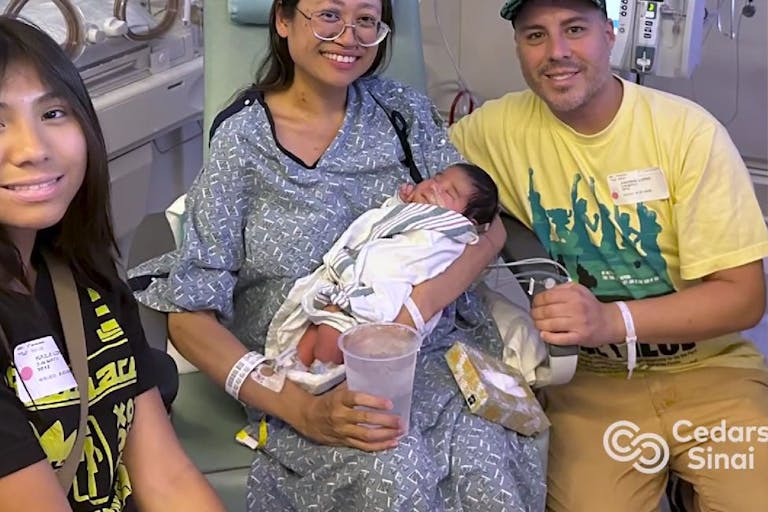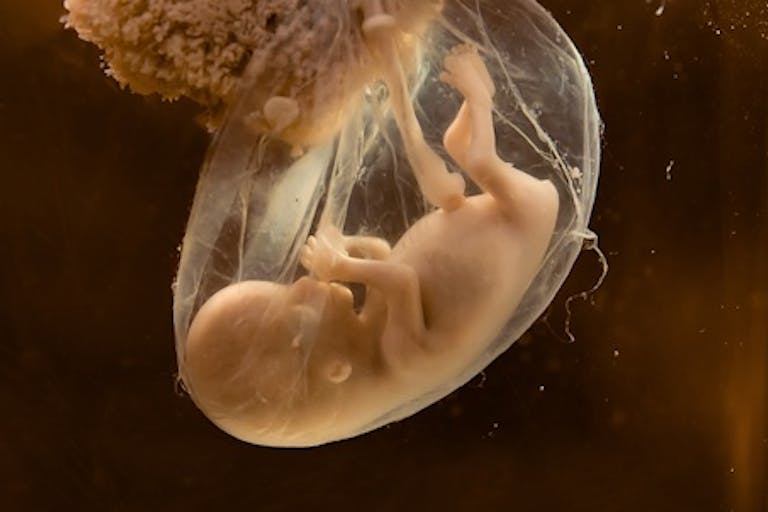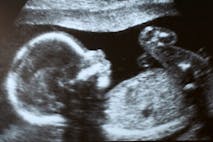
Full term 'miracle' baby born after 'unprecedented' ectopic pregnancy
Bridget Sielicki
·
Treating an ectopic pregnancy is not an abortion
The abortion movement tends to appeal to Americans on the “hard cases.” This is with exceptions such as rape, incest, and especially in “life of the mother” cases. But, as poll analysis shows, even with more Americans considering themselves “pro-choice,” many are more pro-life than they know.
But what about these cases which involve the life of the mother? There are Americans who are pro-life without exception, myself included. And it certainly is possible to be. Does that mean we let women die when their pregnancy tragically, and in rare instances, threatens their life? Of course not. We offer them life-saving, emergency treatment. It is crucial to distinguish though that that is not an abortion.
A direct abortion has one purpose in mind: to end the pregnancy by killing the preborn human child. It does not matter what the woman’s reason is for having the procedure; a successful abortion just means that her child is dead.
As doctors have already declared, an abortion is never medically necessary to save the life of the mother. Now again, we are talking about direct abortion. At times, a mother may need an emergency C-section. Doctors will try to save the child, too, but sometimes the child is not developed enough to survive outside of the womb—that is the difference from a direct abortion. Abortions not only kill children, but do so through brutal means. The emergency treatment, however, was done not to kill the child, but to save the mother. The loss of life, which does occur, is both unintended and tragic. We try to save the child, though sometimes we cannot.
An ectopic pregnancy is one such specific instance where the treatment inevitably and tragically causes the death of the preborn child. But again, death is not the purpose.
Article continues below
Dear Reader,
Have you ever wanted to share the miracle of human development with little ones? Live Action is proud to present the "Baby Olivia" board book, which presents the content of Live Action's "Baby Olivia" fetal development video in a fun, new format. It's perfect for helping little minds understand the complex and beautiful process of human development in the womb.
Receive our brand new Baby Olivia board book when you give a one-time gift of $30 or more (or begin a new monthly gift of $15 or more).
Such a pregnancy is different than any other kind a woman wishes to terminate, because it is not able to continue. The preborn child is supposed to grow in her mother’s uterus, but in this case, the child develops in the fallopian tubes. Such a pregnancy can severely injure or damage the mother. Thus, the baby, and at times, even the fallopian tubes, must be removed.
WebMd and the Mayo Clinic don’t refer to treatments for ectopic pregnancy as abortion — and neither does Planned Parenthood! Yet leave it to extreme pro-abortion outlets, such as RH Reality Check, to turn the issue of ectopic pregnancies against pro-life institutions and the movement.
What’s worse about such an attack coming from the pro-abortion movement is that abortion may even lead to an increased chance of ectopic pregnancies, noted by a French study published in the American Journal of Public Health. An Italian study also notes similar findings.
It is possible to be pro-life without exception and still care about the well-being of both mother and child. A direct abortion is a horrific and barbaric act. We must work towards finding solutions that will save both the mother and child.
Live Action News is pro-life news and commentary from a pro-life perspective.
Contact editor@liveaction.org for questions, corrections, or if you are seeking permission to reprint any Live Action News content.
Guest Articles: To submit a guest article to Live Action News, email editor@liveaction.org with an attached Word document of 800-1000 words. Please also attach any photos relevant to your submission if applicable. If your submission is accepted for publication, you will be notified within three weeks. Guest articles are not compensated (see our Open License Agreement). Thank you for your interest in Live Action News!

Bridget Sielicki
·
Analysis
Angeline Tan
·
Analysis
Cassy Cooke
·
Politics
Madison Evans
·
Opinion
Nancy Flanders
·
Investigative
Carole Novielli
·
Fact Checks
Rebecca Downs
·
Newsbreak
Rebecca Downs
·
Newsbreak
Rebecca Downs
·
Newsbreak
Rebecca Downs
·
Newsbreak
Rebecca Downs
·